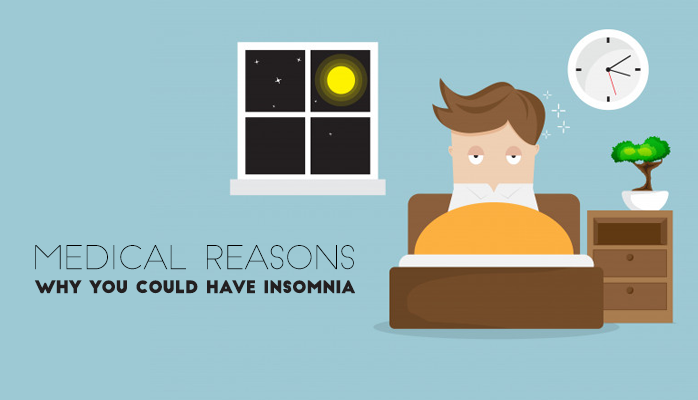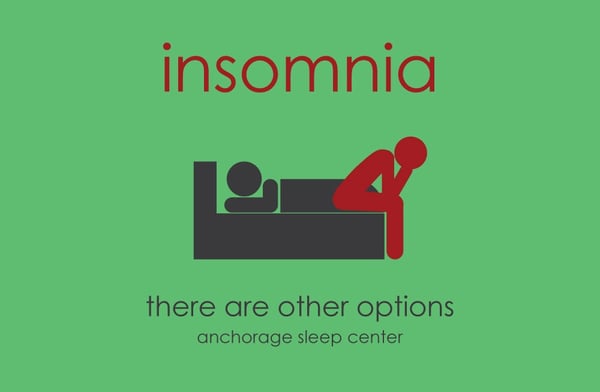What is Insomnia?
Insomnia is a sleep disorder that prevents you from falling asleep, staying asleep throughout the night, or sleeping until a reasonable hour in the morning. The result of insomnia is mild to severe sleep deprivation, which can have severe consequences. Furthermore, it’s an extremely frustrating disorder.
Insomnia can negatively affect several domains of your life:
- Emotionally
- Cognitively
- Physically
- Socially
Every area of health can be negatively impacted by sleep deprivation related to insomnia. If the cause of your insomnia is medical, insomnia can be a vicious cycle where your medical symptoms worsen, which, then, worsens your insomnia.
There are two types of insomnia:
- Primary insomnia – insomnia with no clear, underlying issue
- Secondary insomnia – insomnia as a direct result of something else
Insomnia can also be acute, short-term, or chronic, long-term. Medical causes of insomnia tend to be chronic and primary. These causes could include:
- Disease
- Medications
- Psychological factors
- Demographic factors
Disease Risk Factors for Insomnia
There are several different diseases that can cause or exacerbate insomnia, including:
- Short-term illnesses
- Chronic pain
- Diabetes
- Kidney disease
- Lung disease
- Arthritis
- Heart disease
- Heavy smoking
- Sleep apnea
- Restless leg syndrome (RLS)
- Addiction
- Parkinson’s disease
- Alzheimer’s disease
- Mental disease
Insomnia is often chronic when the medical condition is chronic, though insomnia caused by short-term illnesses is likely to be acute. Insomnia can be greatly mitigated or stopped with proper treatment of the disease.
Medication Risk Factors for Insomnia
In addition to disease-caused insomnia, numerous medications can also cause insomnia as a side effect. Some common examples are:
- Diet pills
- Steroids
- High blood pressure medications
- Theophylline
- Phenytoin
- Levadopa
- Decongestants
Your doctor may be able to work with you to counteract medication-induced insomnia, via the use of alternate medications, melatonin, or other natural remedies.
Demographic Causes of Insomnia
Beyond medications and disease, there are biological factors causing insomnia, mainly age and sex. As we age, our sleep cycles change. We tend to go to bed and wake up earlier, often requiring naps during the day. People over the age of 60-65 are more likely to have insomnia and report challenges with sleep as they struggle to adjust to these natural changes.
Age-induced insomnia is likely due to:
- Natural biological and hormonal changes
- Being more likely to take certain medications that affect sleep
- Change in lifestyle
Also, insomnia is more common in women than men. Other medical risk factors related to being female that may cause short-term insomnia are:
- Pregnancy
- Premenstrual syndrome
- Menopause
Medical/Psychological Risk Factors for Insomnia
Lastly, psychological factors that have a physical impact can also cause insomnia. These causes are very common for people who have chronic and acute insomnia, including:
- Depression
- Chronic stress
- Chronic anxiety
With such conditions, your body and brain may undergo chemical changes that make it harder to sleep, thus causing insomnia.
Treating Medically Caused Insomnia
Treatments for insomnia caused by medical reasons are likely to be similar to general insomnia treatments, including:
- Changes in medication
- Lifestyle changes
- Pain treatment
Over-the-counter pills are usually not recommended – e.g. melatonin – because they may have undesired side effects and lose their effectiveness over time, though in some cases they may be recommended by your doctor.
Treating insomnia will likely require direct consultation with your doctor or a sleep specialist, and may require trial and error to determine down possible causes and best treatment options.
If you live in Alaska and are worried that you are struggling with insomnia, please contact one of our sleep specialists by clicking the orange button below and taking a free online test.



